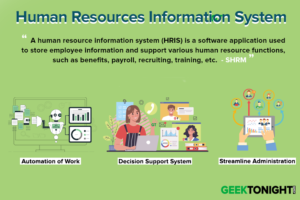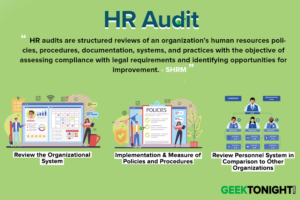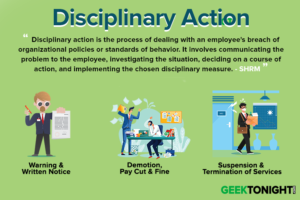What is Career?
Career planning is a process of identifying opportunities and challenges associated with the career of an individual. The concept of career planning can be perceived from two perspectives, namely from the perspective of employees and from the perspective of an organisation. From the perspective of employees, each individual identifieshis/ her career goals, plans and then takes actions to achieve those goals.
On the other hand, organisations consider career planning as an activity that aims to identify the future prospects of employees. It helps in finding out the hidden talents and capabilities of an employee. In addition, it helps in making employees aware about the available career options. On the other hand, succession planning constitutes an important activity of an organisation that involves recognising potential candidates for upcoming key positions.
Generally, it is performed at the top-management level. Career planning and succession planning programmes make effective utilisation of the human resource, decrease the attrition rate, and motivate employees by providing them better career options. In addition, these programmes also develop employees for higher level responsibilities.
Table of Content
Concept of Career
Career can be defined from an objective as well as subjective perspective. From the objective point of view, career refers to the positions handled by an individual throughout his/her life. It is defined as a sequence of work-related activities performed by an individual that gives meaning, stability, and continuity to his/her life.
On the other hand, career can be subjectively defined as the change that occurs in the work attitude of individuals as they pass through various life stages. Both views assume that an individual can create his/her destiny by planning and implementing some systematic actions. However, the career of an individual depends on various other factors, such as family background, education, and experience.
Figure depicts some popular definitions of career by renowned authors:
Features of Career
Career gives a direction to the skills and talent of an individual. Some of the important features of career are as follows:
- Objectivity with subjectivity: This is the most important aspect of an individual’s career, which develops over time. It includes:
- Objective conditions, such as job, duties, and responsibilities
- Subjective reactions, such as enthusiasm and boredom
- Objective conditions, such as job, duties, and responsibilities
- Individual judgement: This signifies the parameters selected by individuals to measure the success of their careers. Every individual sets his/her success criteria, such as salary, adventure and challenging work environment.
- Psychological success: This rejuvenates the efforts of individuals, persuades them to take up new challenges, and scale new heights that promote their growth over time. An individual’s psychological success is considered a key element of his/her career. It involves a sense of personal accomplishment and fulfillment.
- Positions and transitions: These determine the complexity and challenges associated with an individual’s career. An individual in his/her career would typically occupy various positions and transitions in different organisations. In the past, there were fewer positions and transitions because workforce was less mobile and organisations were more stable.
Concept of Career Anchors
A career anchor is a blend of capabilities, motives, and values that an individual considers while making professional work choices. The career anchors enable individuals to identify their choices for certain jobs and plan their career accordingly. Dr. Edgar Schein at the Massachusetts Institute of Technology (MIT) has identified eight main career anchors and proposed that individuals should give priority to these anchors, while deciding upon their careers.
Figure shows these eight types of anchors:
Let’s now discuss each of these career anchor:
Lifestyle
Employees with this career anchor seek work-life balance. These individuals live on the philosophy of work to live, instead of live to work. They enjoy work, but not at the cost of their personal lives. Therefore, they prefer to work in those organisations that promote a good balance between work and personal life.
Managerial Competence
Employees with this career anchor try to co-ordinate the activities of other employees and make efforts to be seen as a positive contributor in the organisational growth. An employee with this type of anchor is good at influencing and controlling people. He/she can not only identify and resolve problems in an uncertain situation, but can also bring emotional stability in case of interpersonal crisis in the organisation.
Technical/Functional Competence
Employees with this career anchor work to become experts. These individuals are motivated to learn new skills and expand their existing knowledge base.
Autonomy/independence: Employees with this career anchor mainly want to work under their own rules and procedures. These individuals avoid standards and want control over their work and recognition for their accomplishments.
Security/Stability
Employees with this career anchor want to work for stability and continuity in their personal lives and work. These individuals want predictability and safety in work. They prefer to work for stable companies and focus on the context of job rather than the content of work. In other words, these individuals give priority to pay, benefits, and work environment.
Entrepreneurial Creativity
Employees with this career anchor work to invent things and take the challenge of starting new projects or their own businesses. These individuals are creative and different from those seeking autonomy because they focus on creating a new business and not just on working without any superior. Individuals with entrepreneurial creativity have tremendous energy and interests, and therefore get bored easily. They consider themselves successful after they have collected sufficient wealth.
Service/Dedication to a Cause
Employees with this career anchor want to pursue their personal values and causes instead of the work itself. These individuals perform well in public services or in service-oriented professions, such as human resource and consultancies.
Pure Challenge
Employees with this career anchor are driven by challenges. These individual thrive on competitive careers. They change jobs as soon as they start to get bored in their existing one. These individuals are motivated by their desire of crossing hurdles, solving problems, winning, and constantly testing themselves.
The aforementioned career anchors are valuable self-assessment scales that help individuals to explore their career options. An individual can use them to evaluate who he/she is, what he/she wants, and what he/she is seeking in a job in future.
Career Stages
The career of an individual generally involves five stages of development, as shown in Figure:
Let’s discuss each stage as follows:
Exploration Stage (0-25 Years)
This stage represents the pre-employment stage of an individual. For most individuals, it ends inmid-twenties when they step into professional life. This pre-employment stage is the least important stage for the organisations, but very important for individuals.
This is because individuals view it as a stage of self-exploration in which they search for answers to various questions regarding their careers. In this stage, the career objectives of individuals are influenced by their parents, teachers, friend, and relatives. The career choices of their peers also affect their career decisions.
Establishment Stage (25-35 Years)
In this stage, individuals start looking for their first jobs and join them. This stage provides the first job experience, peer group evaluations, and uncertainties and anxieties to individuals. Individuals tend to make mistakes and learn from them. They try to establish their positions in the society, get recognition for their work, and get promotion in their careers.
Mid-Career Stage (35-50 Years)
In this stage, the individuals evaluate their life structure that has recently stabilised. This is a problematic and stressful stage for them as they are no longer viewed as learners. Their mistakes are seriously evaluated by seniors and may invoke penalties or punishments. The individuals may also experience mid-life or mid-career crisis. Their performance either improves, or becomes stable, or declines.
If the performance is declining, then it indicates that the individual has lost interest and productivity in his/her existing job. Consequently, his/her job as well as career starts stagnating. Those who successfully transition from this stage to the next stage, namely the late career stage, receive greater responsibility and rewards.
Late-Career Stage (50-65 Years)
This stage establishes the shape and graph of an individual’s career, which may be categorised by growth or stagnation. The individuals who continue to grow after the mid-career stage are well-respected by the younger employees. Organisations value their vast and varied experience and pay heed to their judgements borne out of years of service.
Therefore, these individuals are asked to teach and share their valuable experience to others. On the other hand, the individuals whose performance has deteriorated during the mid-life stage find it difficult to survive in the late-career stage.
Decline Stage (> 65 Years)
This stage compels the individuals to retire from their positions to make way for other deserving younger individuals. This stage represents the toughest time for high achievers because they now suffer from inactivity and non- -creativity.
However, it represents a pleasant time for mediocre individuals because they leave behind their work-associated frustration. Irrespective of whether an individual was a high-performer or a low-performer, he/she is asked to retire from the organisation, make adjustments, and get along with the people, situations, and surroundings to live a happy retired life.
Human Resources Tutorial
(Click on Topic to Read)






